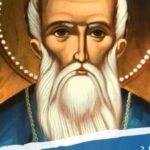Global Courant 2023-05-02 07:28:22
Canadian folk music icon Gordon Lightfoot, whose evocative and poetic songs are etched into Canada’s musical landscape, has passed away at the age of 84, according to longtime publicist Victoria Lord.
Lord says Lightfoot died Monday night in a Toronto hospital. The cause of death was not immediately known
Born in Orillia, Ont., Lightfoot has been hailed as Canada’s folk troubadour for his soulful music and rousing lyrics. In issues such as The Canadian Railroad Trilogy and The Wreck of the Edmund Fitzgerald, he explored the country’s history, geography, and culture.
“He’s our poet laureate, he’s our iconic singer-songwriter,” said Rush singer Geddy Lee in the 2019 documentary Gordon Lightfoot: If You Could Read My Mind.
“If there was a Mt. Rushmore in Canada, Gordon would be on it,” said Tom Cochrane in that same documentary.
“Gordon’s songs are works of art, as relevant as classical poetry,” said Cochrane in his salute to Lightfoot at the 2003 Canadian Songwriters Hall of Fame gala.
“But more importantly, Gordon Lightfoot led the way and he showed us… that you can stay true to your roots. You can draw from your influences at home and in the country and you can incorporate those inspirations into the structure of you work and still are internationally successful.”
From teenage promise to popular fame
A youth performer on local radio and regional music festivals, Lightfoot wrote his first song, The Hula Hoop Song, in 1955, while still in high school.
“A lot of the imagery in my songs comes from countries like this,” the singer-songwriter said of Orillia in a 1967 interview with CBC-TV’s Telescope.
“I’ve been to many places and I’ve seen a beautiful country. I don’t think any of it will ever stay with me or impress me as much as this country here in Muskoka… It’s the country I grew up in. “
LOOK | Lightfoot on how his home has shaped his songs:
Gordon Lightfoot on where he grew up
Gordon Lightfoot talks about the Canadian Shield and how the imagery in his songs comes from all over Orillia.
After graduating from high school, Lightfoot moved to Los Angeles to attend Westlake College of Music. He returned to Canada in 1959 and worked several jobs in Toronto. He was a choral performer, a dancer on CBC’s Country Hoedown and a folk singer in the Two Tones with Terry Whelan.
In the 1960s, Lightfoot, inspired by the music of Bob Dylan, became part of Toronto’s burgeoning folk scene. He developed his songwriting and started working on a debut album. Light-footed! originated in 1966.
At the same time, Lightfoot began what would become a highly anticipated, annual concert stand at Toronto’s Massey Hall. Launched in 1967, it happened every year until the mid-1980s, then dropped to about once every 18 months. In 2005, Lightfoot resumed the Massey Hall event as an annual tradition.
Lightfoot performing at the halftime show at the 100th CFL Gray Cup Game on November 25, 2012 in Toronto. (Sean Kilpatrick/The Canadian Press)
International recognition
After earning awards at home in the late 1960s, the Canadian troubadour made his international breakthrough in the 1970s after signing with Warner Records in the US. At the beginning of that decade he made an impression with the release of the single If You Could Read My Mind, now a folk standard.
Lightfoot followed that up over the next six years with what became many of his best-known songs, such as Beautiful, Sundown, Don Quixote, Carefree Highway, Rainy Day People, and The Wreck of the Edmund Fitzgerald.
Some of those songs were written after his first marriage ended during a lively, long-standing relationship with Cathy Smith, who was later convicted of supplying drugs to John Belushi after his death from an overdose.
“It was one of these relationships where you get a sense of danger in the picture,” Lightfoot said in 2019’s If You Could Read My Mind.
LOOK | Lightfoot relates how he writes:
Gordon Lightfoot on writing songs with a Canadian ‘atmosphere’
Gordon Lightfoot talks to Vancouver teens about not necessarily writing songs about Canada.
Lightfoot hit the road in the 1970s, touring the US from Alaska to Hawaii and playing a host of European concert dates including Amsterdam, Munich, Frankfurt, Switzerland’s Montreux Festival and sold-out performances at London’s Royal Albert Hall.
Despite the decline of folk music in the late 1970s and 1980s, Lightfoot continued to create his signature music, although he also made forays into acting, appearing in the film Harry Tracy starring Bruce Dern and Helen Shaver.
In 1987, the much-admired songwriter made headlines when he filed a lawsuit against Michael Masser, who composed the tune The Greatest Love of All. The song became a huge hit after being recorded by Whitney Houston.
Lightfoot claimed that Masser’s song stole 24 bars of melody from If You Could Read My Mind. The matter was settled out of court, with Masser publicly apologizing.
Lightfoot performs on 100 Years Young, a CBC variety special for Canada’s centennial on January 1, 1967. (Roy Martin/CBC Still Photo Collection)
Determined artist
Over the course of his long career, Lightfoot overcame several illnesses, including a bout of Bell’s palsy and, in his early years of performing, alcoholism. He beat addiction in the 1980s.
In September 2002, the country was turned upside down when news broke that Lightfoot had been airlifted to hospital with severe abdominal pain just as he was about to take the stage for a concert in Orillia. The singer suffered a ruptured artery in his stomach, had to undergo several surgeries and was in a coma for six weeks.
After three months in the hospital, Lightfoot bravely approached his recovery and vowed to finish a new studio album and return to the stage. He released the album Harmony in 2004 and made his comeback performance at the Mariposa Festival that same year.
LOOK | In conversation with Alex Trebek about writing folk songs:
Gordon Lightfoot and Alex Trebek in CBC teen dance show in 1963
A young Gordon Lightfoot talks to Music Hop host Alex Trebek about his writing and recording plans.
Although he suffered a mild stroke in 2006 that temporarily left him with no use of fingers in his left hand, he persevered with regular guitar practice and calisthenics to keep him in shape for the road ahead.
He took the premature news of his passing in 2010 to heart and later performed a high-profile Canadian Songwriters’ Hall of Fame concert with Gord Downie of The Tragically Hip, while maintaining his own touring schedule.
Inspiration for many musicians
Many Canadian musicians have cited Lightfoot as an inspiration, from Downie to classical guitarist Liona Boyd.
In addition to early adopters such as folkies Ian and Sylvia Tyson, and Peter, Paul, and Mary, a wide variety of artists recorded Lightfoot’s music, including his idol Bob Dylan. Elvis Presley, Johnny Cash, Petula Clark, Stompin’ Tom Connors, Liza Minelli, Barbara Streisand, Sarah McLachlan, and Anne Murray. The Rheostatics also carried out his work.
“I’ve never heard a cover of one of my songs that I didn’t like,” Lightfoot told the Arkansas Democrat Gazette newspaper in 2008.
“Of course I heard some odd versions now and then, but they always seemed to work well. I’d be surprised if people enjoyed my songs enough to want to record them, and it inspired me and made me want to go harder to work.”
LOOK | On creating a lifetime of music:
Gordon Lightfoot on making his greatest hits
Canadian music legend Gordon Lightfoot talks to Ian Hanomansing about his music, his legacy and some of the darker parts of his personal life during his five decades in the music business.
Lightfoot received a series of tributes in recognition of his contribution to Canadian music and culture. There were covers, honorary degrees, a stamp, and even a guitar made in his name. He won a Governor General’s Performing Arts Award in 1997 and was made a Knight of the Order of Canada – the highest level of the order – in 2003.
A multiple Grammy nominee with more than 15 Juno Awards to his credit, Lightfoot has been inducted into many halls of fame, including the Canadian Music Hall of Fame. Bob Dylan officiated at the ceremony.
“I know he’s been offered this award before and he never accepted it because he wanted me to come here and give it to him,” Dylan joked on stage at the 1986 Juno Awards gala. rare talent.”
Lightfoot performing at Live 8 Canada on July 2, 2005 in Barrie, Ont. (Donald Weber/Getty Images)
Prime Minister Justin Trudeau said Canada has lost “one of our greatest singer-songwriters”.
Lightfoot “captured the spirit of our country in his music — helping shape Canada’s soundscape in doing so,” Trudeau said in a Twitter post.
We’ve lost one of our greatest singer-songwriters. Gordon Lightfoot captured the spirit of our country in his music – helping to shape Canada’s soundscape. May his music continue to inspire future generations and may his legacy live on forever. To his family…
A consummate entertainer to the end, Lightfoot stubbornly refused to give up live shows. He toured the UK for the first time in 35 years in 2015 and two years later was part of Canada’s 150th anniversary celebrations in Ottawa.
In 2020 he released Solo, a collection of studio recordings he had been kicking in the vaults for several years. In 2010, he vowed to keep playing up to 70 gigs a year “because I love doing it”.
Lightfoot is survived by his wife, Kim, six children – Fred, Ingrid, Galen, Eric, Miles and Meredith – and several grandchildren.
Streaming now on CBC Gem:



